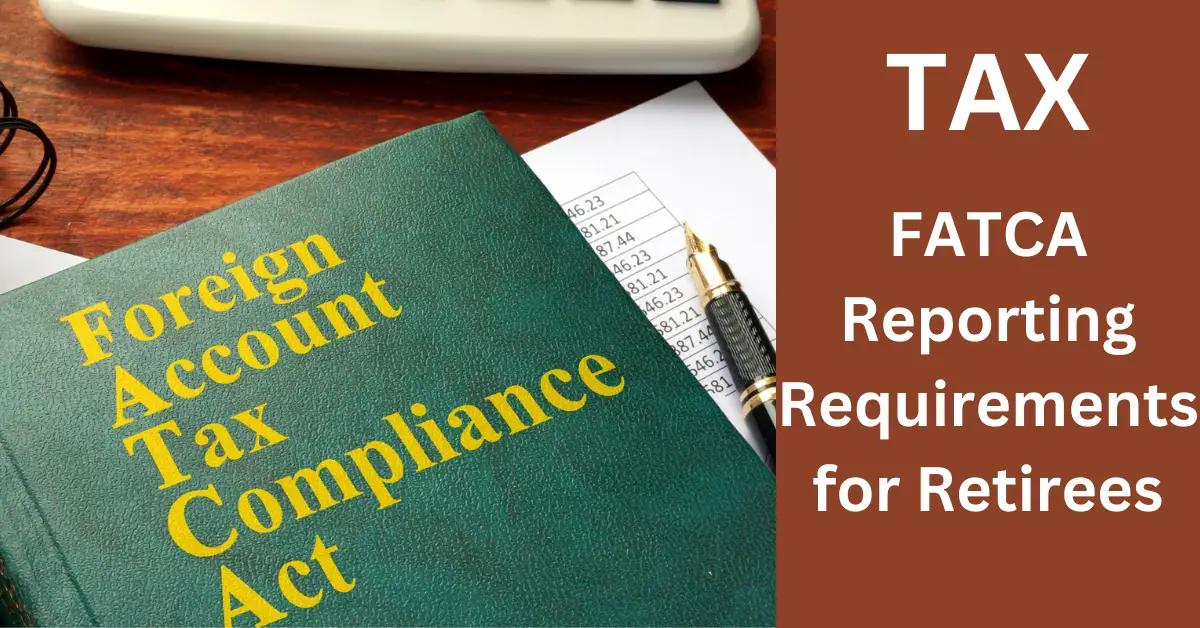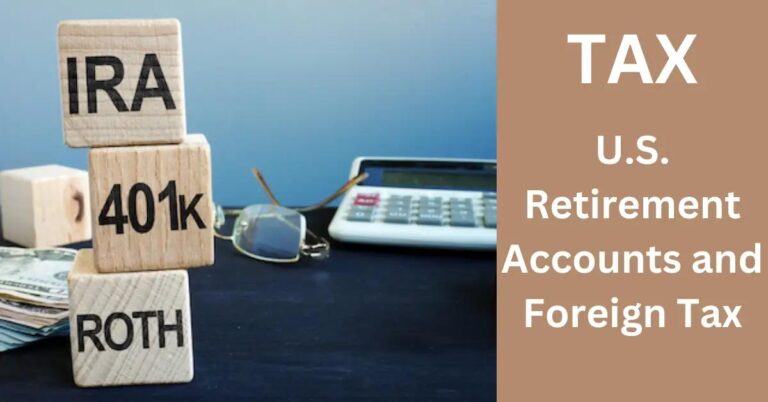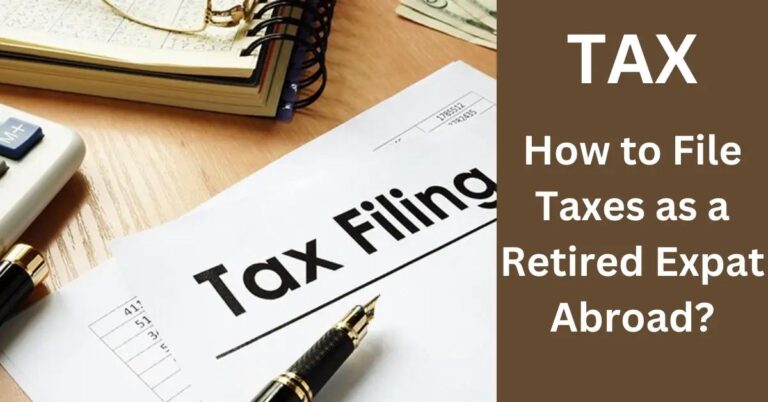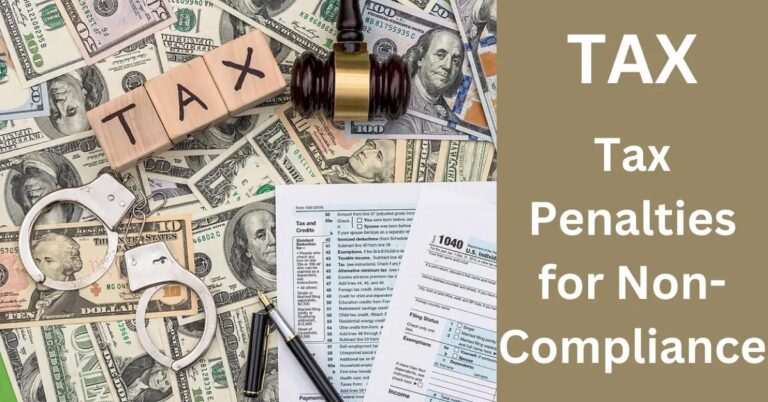TL;DR:
- FATCA requires U.S. retirees with foreign assets above set thresholds to report them to the IRS.
- Reporting thresholds vary based on residency and filing status, e.g., $200,000 for single filers living abroad.
- Required filings include Form 8938 for reporting foreign accounts, in addition to FBAR requirements.
- Non-compliance penalties can reach up to $50,000, and retirees can face severe IRS measures.
- FATCA affects expatriate retirees, complicating financial planning due to international tax laws.
- Retirees should seek expert guidance to ensure FATCA compliance and avoid financial risks.
- Accurate record-keeping and timely filing are critical for mitigating penalties and ensuring retirement security.
Navigating FATCA can feel daunting, especially for retirees abroad. This U.S. law impacts how we report foreign assets. But, don't worry—I've got you covered. In this post, I'll explain FATCA's reporting rules and its effect on retirees. We'll dive into what needs reporting, how to stay compliant, and the risks of non-compliance. Let's ease those worries and make your retirement smoother, shall we?
What is FATCA and How Does it Affect Retirees?
The Foreign Account Tax Compliance Act (FATCA) is a law in the United States. Its main goal is to stop tax evasion by U.S. taxpayers with foreign accounts. Under FATCA, certain financial accounts held abroad must be reported to the IRS. So, who is required to report under FATCA? If you're a retiree with foreign assets over specified limits, you need to report.
FATCA affects retirees living abroad or with international financial accounts. Retirees might have foreign accounts for many reasons. It could be because they've moved countries after retiring or invested globally. It's crucial to understand FATCA if you're retired and living as an expat. Not understanding can lead to big financial problems.
FATCA's main purpose is making sure people pay the taxes they owe. But what are the FATCA reporting requirements for retirees in 2021? You must report if your foreign financial assets go beyond set thresholds. For example, U.S. citizens living abroad might report if assets upper $200,000.
The need to understand FATCA goes beyond just filling forms. Filing ensures retirees aren't hit by penalties for not reporting. The law often changes, making it key to stay updated.
FATCA's key elements impact expatriate retirees most. These retirees often have a more complex financial situation. They must account for things like multiple border capital and different currency exchanges. Understanding these elements helps prevent misunderstandings about reporting duties.
In our interconnected world, solutions like FATCA reflect the global nature of finance today. For expatriate retirees, this means taking a proactive stance toward legal requirements. This stance not only safeguards interests but also supports calm and security during retirement. Keeping this in mind while managing finances helps you face vital reporting duties head-on.
What Accounts and Assets Must Retirees Report Under FATCA?
You might ask, "What needs to be reported for FATCA?" In a nutshell, retirees must report certain foreign accounts. These include bank accounts, mutual funds, some pensions, and other foreign assets. The key here is to identify assets held outside the United States. Everything from FATCA foreign accounts to direct stocks need attention.
The next important question: What is the FATCA reporting threshold? It varies. If you live overseas and file taxes separately, it's $200,000 on the last day of the year or $300,000 anytime during the year. For joint filers, the thresholds are $400,000 and $600,000, respectively. Living in the U.S.? Thresholds drop to $50,000 for singles and $100,000 for joint filers on the last day of the year. Higher in-year values are $75,000 and $150,000.
Now, how does FATCA impact international asset reporting? It's significant. The IRS offshore account reporting means transparency. It ensures the IRS knows about your offshore assets above these thresholds. Financial institutions also report to the IRS, so double-checking your accounts is wise.
Let's talk about the required documentation. You'll need Form 8938 for many foreign assets, like bank accounts. Keep track of account numbers, the name and address of the bank, and maximum account values during the year. This documentation is essential for compliance.
Even if your accounts are already reported on the Foreign Bank Account Report (FBAR), FATCA requirements might differ. Understanding these differences keeps you law-abiding. Always consult a tax professional if you're uncertain. They help ensure your reports are both complete and true. Trustworthy info is crucial to avoid hassles down the road.
How Can Retirees Ensure IRS FATCA Compliance?
To ensure IRS FATCA compliance, start by determining if you need to report. Ask yourself, "Am I exempt from FATCA reporting?" If your foreign assets are below the reporting threshold, you may not need to report. However, these levels vary based on filing status and residency. Verify if you meet these requirements with accurate documentation.
Understanding IRS guidelines is crucial. FATCA (Foreign Account Tax Compliance Act) mandates that U.S. citizens, including retirees, report foreign assets. Check the IRS guidelines here. It explains who must report and how to do it. Stay informed about any updates or changes.
Retirees face common compliance challenges. These include understanding which accounts to report and meeting IRS deadlines. Keep accurate and current records of your foreign assets. Don’t miss any IRS communications about your reporting duties.
What about best practices to stay compliant? Start by making a checklist of required forms and information. For instance, you might need Form 8938 if your foreign assets exceed certain limits. Know all the filing dates and set reminders. Stay organized with a folder for all your FATCA documents and communications.
Another key practice is to seek help. Consider hiring a tax expert who understands FATCA. They can help ensure you follow all rules and avoid penalties. If you're using an overseas bank, check if it's compliant with FATCA rules. Some financial institutions have specific policies for American clients.
In summary, understand exigent steps and best practices, keep up with IRS rules, and gather correct documentation. This will help ensure proper adherence to FATCA requirements and avoid missteps that could lead to fines or other issues.
What are the Consequences of FATCA Non-Compliance for Retirees?
Failing to report under FATCA can lead to big penalties. Retirees face up to a $10,000 fine per violation. If you ignore this, it can rise to $50,000. Penalties can really hurt your savings and future security.
The IRS takes these non-compliance issues seriously. They have the power to enforce strict measures. Retirees might face bank account freezing or garnished wages. The IRS can dig into your finances through audits to ensure compliance.
FATCA audits are thorough. They look at your foreign accounts closely. Retirees should prepare for these audits by keeping detailed records. Having proper documentation can reduce IRS risks and help avoid severe penalties.
But who is exempt from FATCA reporting? Most retirees with foreign accounts must report. Some exceptions exist, such as certain tax-advantaged accounts. However, it’s best to check with a tax expert for exact rules.
What is the IRS limit for FATCA? The limit often stands at $50,000 in financial assets. Though, it depends on factors like filing status or living abroad. Such details are crucial for understanding who must report.
To avoid FATCA-related financial penalties, retirees can follow strategic steps. First, always file on time, even if you can't pay the tax owed. Next, keep precise records of all foreign accounts and transactions. Finally, seek expert advice to ensure full compliance.
FATCA non-compliance carries serious risks, but you can avoid them. Understand the rules and seek help when needed. Ensure all reporting is accurate to protect your future beyond financial penalties.
How Does FATCA Influence Retirement Planning for Expats?
FATCA changes how expats plan their retirement. It affects savings and taxes a lot. Is FATCA filing important for retirees? Yes, it is crucial. Expats must know the filing forms required by the IRS. FATCA demands that expats report foreign financial assets over a set threshold. This means reporting accounts and investments held overseas. Failure to do so can result in penalties and audits.
Planning for retirement asks us to consider the tax implications carefully. FATCA impacts how we save for the future. When handling retirement savings, consider taxes in the country you reside and those of the United States. FATCA rules can affect your access to some foreign bank accounts due to compliance costs.
Can FATCA change cross-border retirement plans? Definitely, it requires us to think broadly. We have to plan for these taxes across different countries. Being an expat means dealing with both local tax laws and U.S. requirements. Strategies might include choosing the right financial products that comply with both regulatory environments.
Resources and guidance are essential tools. There are guides and experts who can help navigate these complex waters. Use resources like tax consultants who specialize in cross-border and expat taxation. Seek financial advisors familiar with FATCA requirements to optimize retirement planning. Combining expertise helps manage tax implications and protects your savings.
In summary, FATCA has strong implications for how expats manage retirement. Understanding reporting forms, planning for associated taxes, and navigating cross-border strategies is vital. The right resources guide us to ensure compliance and make informed financial decisions for retirement.
Conclusion
Navigating FATCA is vital for retirees living abroad. We've explored FATCA’s purpose, its impact on retirees, and the need for compliance. Retirees must understand reporting requirements to safeguard their international assets and avoid penalties. By knowing what accounts to report, staying updated on compliance practices, and planning strategically, retirees can secure their financial peace. Don’t let FATCA uncertainty undermine your retirement; stay informed, compliant, and ready. With the right approach, you can enjoy life abroad without financial worries tied to FATCA.












